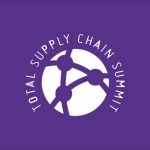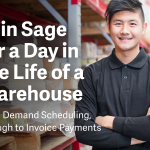Food/Beverage
Software applications that streamline and automate business processes throughout the supply chain to improve planning, optimise inventory levels, reduce costs, and respond quickly to changes in customer and supplier demand.Top tips to help food and drink wholesalers reduce waste
The issue of sustainability is once again a hot topic thanks to last year’s Blue Planet 2. Although the key focus is currently on reducing plastic packaging, we wanted to highlight how food and drink wholesalers can reduce waste in other ways throughout their supply chain. The trend for fresh products is becoming increasingly popular […]
The issue of sustainability is once again a hot topic thanks to last year’s Blue Planet 2. Although the key focus is currently on reducing plastic packaging, we wanted to highlight how food and drink wholesalers can reduce waste in other ways throughout their supply chain.
The trend for fresh products is becoming increasingly popular as consumers demand healthier options for when they’re on-the-go. This means your customers need more and more fresh produce to attract shoppers to their business.
However, it is estimated that nearly 2 million tonnes of fresh produce is wasted throughout supply chains across the UK. Which equates to nearly £1.9bn of lost sales across the food and drink industry!
Research by WRAP (The Waste and Resources Action Programme) revealed that over half of this waste is avoidable. You may have seen The Grocer launched their “Waste Not, Want Not” campaign in a bid to highlight this issue and encourage more unsaleable food to be donated to charity. So far the results look positive, with a 70% increase of food being redistributed by FareShare.
Yet one of the most significant causes of waste is because of poor supply chain management, along with incorrect forecasting or out of date information. All of which can easily be overcome with the efficient use of technology.
Outlined below is how you can utilise our Accord solutions to reduce waste and maximise profits across your operations:
Dynamic demand forecasting: have automatic prompts identify when products need re-ordering. This enables you to react quickly to sales trends and means you don’t over order, so your stock levels are kept to the optimum level. Recent studies in the USA have even shown that food and drink businesses with forecast-driven automatic replenishment solutions can reduce food waste by up to 30%!
Scheduled deliveries: Set rules about how and when you want to receive products from your suppliers. This will help you avoid receiving products with short ‘best before’ dates which cannot be turned around in time for your customers.
Real-time goods receiving: Use Voice or RF devices to cross-reference goods received with purchase orders in real-time so you can identify any discrepancies immediately. They can also alert you when the life of products received are too short (as defined in your delivery rules). The real-time functionality means all of your warehouse activity from goods received through to delivery will be time and date stamped, giving you total traceability.
Automatic stock replenishment: Enable automatic triggers when your pickface needs replenishing. This ensures your oldest stock is always picked first and not left to go out of date.
Route optimisation: It’s not just food waste you can avoid. Reduce transport emissions later down the line by enabling customer orders to be picked by the most efficient delivery route. This will not only eliminate the need for multiple deliveries but also keep your costs to a minimum.
Maximise transport space: Verify orders before the stock is placed on the truck to ensure product amounts are correct, space is optimised and unsaleable returns are avoided.
Find out more about our Accord solutions and how they can help you create a sustainable future by contacting us on 0161 355 3000










